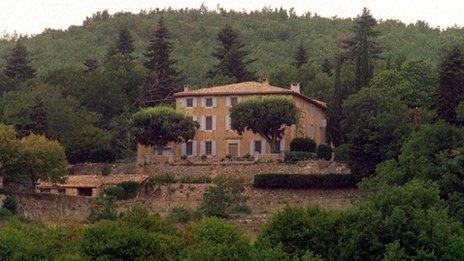France's Hollande attacks report of affair with actress
- Published
The BBC's Gavin Hewitt: "These revelations come at a difficult time for Francois Hollande"
French President Francois Hollande says he is considering suing a magazine which claimed he was having an affair with actress Julie Gayet, 41.
Mr Hollande described the report as an "attack on the right to privacy", but did not deny the allegation.
Friday's print edition of the weekly tabloid Closer, external features seven pages about the alleged affair.
Closer later said it would remove its website version of the story at Ms Gayet's request.
"Julie Gayet's lawyer contacted us to request we remove from the website all mention of this relationship," Laurence Pieau, editor of Closer, told Agence France-Presse news agency, adding that the removal would probably take place by Friday evening.
No action was announced about the print version however.
Ms Pieau said there had been no contact with the presidential palace.
'Surprising images'
Ms Gayet has appeared in more than 50 films, and once appeared in one of Mr Hollande's election campaign television adverts.
Rumours of their alleged relationship have been circulating on the internet for many months.
Last March, she filed a complaint with prosecutors in Paris against various bloggers and websites that were reporting on the rumours.
Her lawyer at the time said there was no basis to the claims. She has not yet commented on the latest developments.
Mr Hollande's official partner is Valerie Trierweiler, a journalist for whom he left fellow Socialist politician Segolene Royal, the mother of his four children.
Mr Hollande told AFP that he "like every other citizen has a right" to privacy.
In a statement issued personally rather than by his office, he said he was "looking into possible action, including legal action" against Closer.
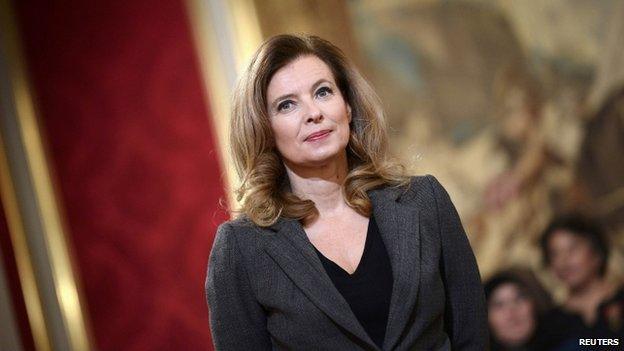
The president's official partner is the journalist Valerie Trierweiler who lives with him at the Elysee palace
But he does not deny the allegation of an affair, the BBC's Hugh Schofield in Paris points out.
Closer's story shows pictures it claims support rumours that the 59-year-old president routinely spends the night with Ms Gayet at a flat not far from the Elysee Palace.
The pictures purportedly show the pair arriving separately. Mr Hollande, wearing a helmet, is on a motorbike driven by a chauffeur.
The magazine claims the president's bodyguard arrives the following morning to deliver croissants.
Closer defended its publication of the photos, saying the "surprising images" raise a question about the security of the president.
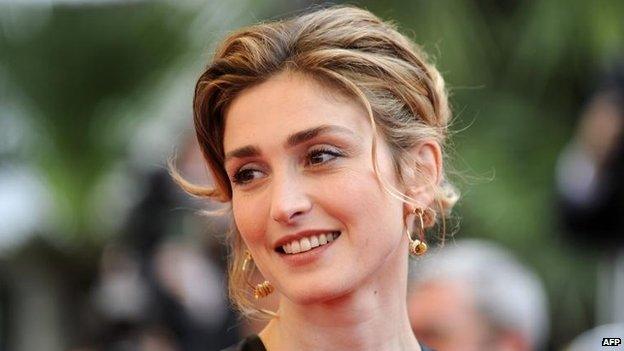
Julie Gayet has appeared in more than 50 films
Laurence Pieau said the images should not be "over-dramatised" and described Mr Hollande as a "normal president" - a phrase he himself has used to define his style of leadership.
"He's a president who has a crush," she told Europe 1 Radio.
Traditional tolerance
Closer magazine has run up against France's strict privacy laws - which make it a criminal offence to publish information about a person's private life without their express permission - in the past.
The British royal family took legal action against the magazine in September 2012 after it published photos of the Duchess of Cambridge sunbathing topless on a private holiday in France.
Ms Pieau - along with two photographers and the magazine's publishing director Ernesto Mauri - has since been charged with breaching privacy laws.
French political commentator Anne Elisabeth Moutet told the BBC the magazine was unlikely to have gone with the story about Mr Hollande's alleged affair "without being quite sure that they had something on it".
"And what's very interesting is that this was immediately picked up by one of the very respectable news magazines, Le Point," she said.
It was unlikely legal action could now suppress the story, Ms Moutet added.
President Hollande, who took office in May 2012, has seen public support slipping recently. One poll in November gave him just 15% support, the lowest for any president in the past 50 years.
French people have historically been tolerant of their leaders' infidelities - with revelations making little impact on poll ratings.
Former President Jacques Chirac was a known ladies' man, once confessing: "There have been women I have loved a lot, as discreetly as possible."
His predecessor Francois Mitterand kept secret a mistress and daughter for much of his presidency, only acknowledging them shortly before his death in 1996.
- Published10 January 2014
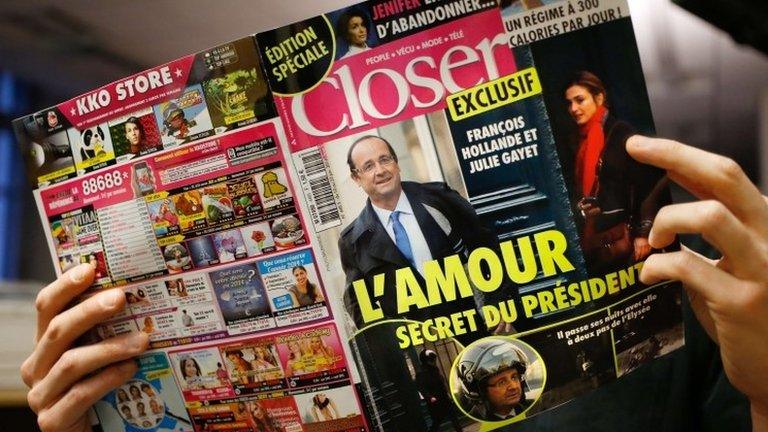
- Published10 January 2014
- Published2 April 2014
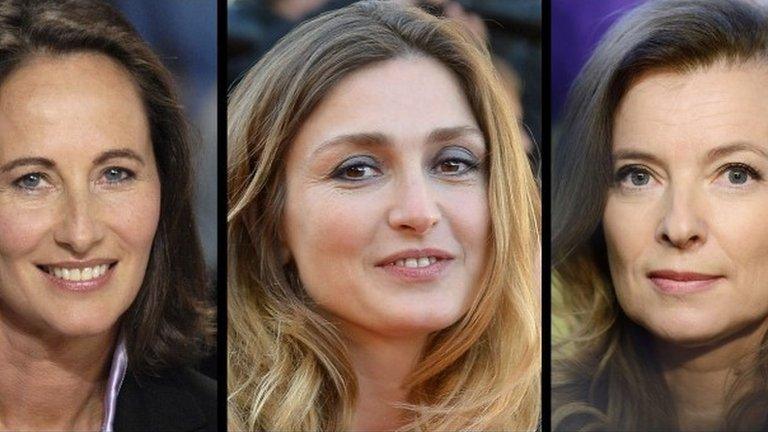
- Published10 January 2014
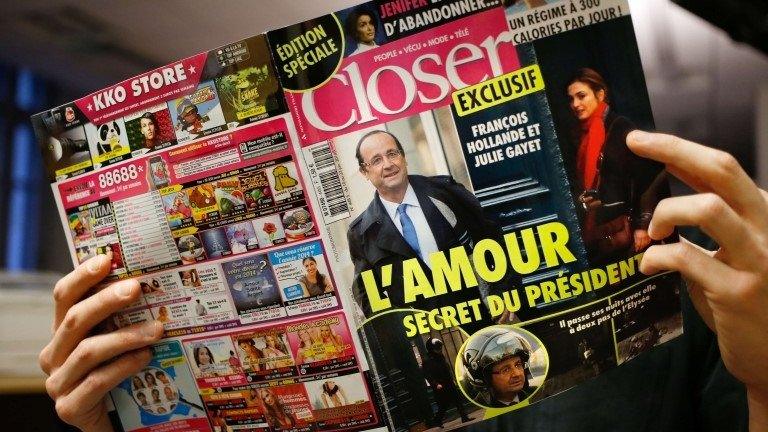
- Published28 November 2014
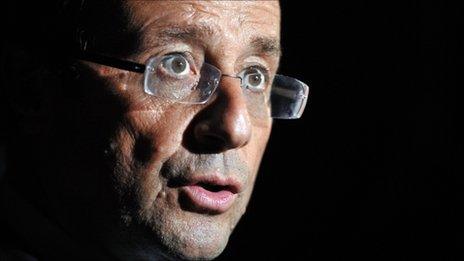
- Published14 September 2012
